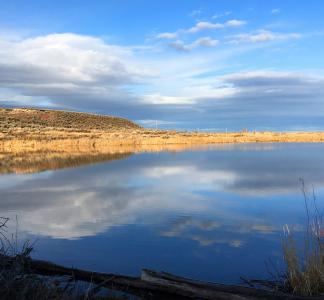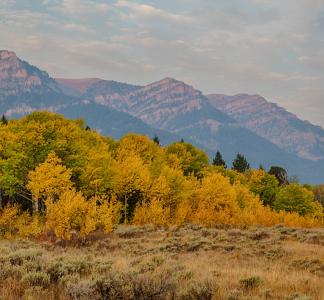Thomas Chamberlin / Alamy Stock Photo
Land takeover threat looms over wild Oregon lands
Wild places in Oregon are at risk of “land takeovers.” Vulnerable places range from from the glacier-carved forests near Portland to freshwater wetlands in the eastern part of the state.
These attacks aim to seize national forests and other public lands and transfer them to state or private control. They come from local lawmakers and outside interests alike, and were most chillingly illustrated by the infamous Bundy family’s armed takeovercapture of Malheur National Wildlife Refuge in 2016.
Land takeovers could cut off access to cherished outdoor recreation spots and cost Oregon communities their livelihoods. We cannot allow this movement to gain a foothold.
Oregonians love to camp, hike, fish and play on their public lands, generating billions of dollars for local communities in the process. Efforts to privatize these lands would hurt Oregon’s economy and lead to management that concentrates on development.
The threat
In 2016, the notorious Bundy family staged an armed occupation of Malheur National Wildlife Refuge, a beloved bird-watching spot in eastern Oregon. Their dangerous stunt highlighted a movement that wants to remove protections from public lands so they can be transferred to state or private control. In Oregon, there have been several “land takeover” proposals to that end introduced in the state legislature.
Once lands are transferred to state control, history tells us they’ll often be managed purely to make money—or even sold off outright. In recent years, Elliott State Forest, a couple hours’ drive from Eugene, was nearly sold off to a timber company. By contrast, agencies like the U.S. Fish and Wildlife Service or the U.S. Forest Service are required to manage our land for multiple purposes, including recreation, conservation, wildlife preservation and resource extraction.
We work at the local, state and national levels to prevent land takeover measures from becoming law and ensure public lands stay in public hands.
What we're doing
-
Studying the risks
We study the effects of measures to turn public lands over to state or private control, publishing the results of our research to make the case that public lands must stay in public hands.
-
Rallying support to “Keep It Public”
We’re rallying support for measures that keep public lands in public hands, including legislation and a legal petition that asks the Department of the Interior to develop rules prohibiting the sale or transfer of public lands.



